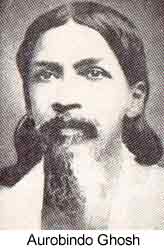

 |  |
 The extremists were convinced that the battle of independence has begun as the people had been roused. They felt that this was the time for the big push and the moderates were a big drag on the movement. Most of them led by Aurobindo Ghose thought that the tome has come to part ways with the moderates, push them out of the leadership of the Congress, and split the organization if the moderates could not be deposed. The extremists were convinced that the battle of independence has begun as the people had been roused. They felt that this was the time for the big push and the moderates were a big drag on the movement. Most of them led by Aurobindo Ghose thought that the tome has come to part ways with the moderates, push them out of the leadership of the Congress, and split the organization if the moderates could not be deposed.Most of the moderates led by Pherozeshah Mehta, were no less determined on a split. To remain with the extremists was, they felt, to enter dangerous waters. They were afraid that the Congress organization, built carefully for the past twenty years, would be shattered. Government was bound to suppress any large-scale anti-imperialist movement; why invite premature repression? The main public leaders of the two wings, Tilak (for the extremists) and Gokhale (for the moderates) were mature politicians who had a clear grasp of the dangers of disunity in the nationalist ranks. Tilak could foresee that a powerful national movement could not be built at this juncture without the unity in the nationalist ranks. His tactics was to organize massive support for his political line and force the moderates to a favourable compromise. But having roused his followers in Maharashtra and pushed on by the more extreme elements of Bengal, Tilak found that he could not dismount from the tiger he found himself rifing. When it came to the crunch, he had to go with the more extreme leaders like Aurobindo Ghosh. Gokhale, too, saw the dangers of a split in the nationalist ranks and tried to avoid it. But he did not have the personality to stand upto a willful autocrat like Pherozeshah Mehta. He, too, knuckled under pressure. The Congress session was held on 26 December, 1907 at Surat, on the banks of the river Tapti. The extremists were excited by the romours that the Moderates wanted to scuttle the four Calcutta resolutions. The Moderates were deeply heart by the ridicule and venom poured on them in mass meetings held at Surat on the previous three days. The delegates, thus, met in an atmosphere surcharged with excitement and anger. continued..... next page >> |
Copyright ©2000 indiansaga.info. All rights reserved.
By using this service, you accept that you won't copy or use the data given in this website for any commercial purpose.
The material on indiansaga.info is for informational & educational purpose only.
This site is best viewed at 800 X 600 picture resolution.